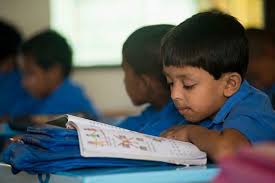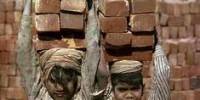Bangladesh has made important progress in human development, in liberalizing its economy for rapid, outward-oriented growth, and in innovative models of NGO-led development that are being replicated worldwide.
A Vision of Bangladesh in One Generation the Vision
Bangladesh can win the war on poverty within one generation, meeting the basic needs of the vast majority of the population by 2020. A recent study suggests that Bangladesh could reach middle-income status by 2020, with a per-capita income of over $1200 (at 1997 prices). The targets would be:
- a population growth rate down from 1.8 percent to 1.2 percent per year, with a net replacement ratio of 1 reached by 2010
- infant mortality for children under five halved from 80 per 1000 live births to under 40
- maternal mortality reduced by three-fourths from 450 per 100,000 to 125
- severe malnutrition for all ages eliminated, and malnutrition among children down by 80 percent
- every child, girl or boy, enrolled in primary school and most completing primary education
- enrolment in secondary school, with gender parity, doubled from 26 percent to 52 percent
- adult literacy raised to 95 percent of the 15+ population
These achievements would exceed the OECD Development Assistance Committee’s Basic Goals for 2015, as laid out in Shaping the 21st Century: The Contribution of Development Cooperation.
The Bank is committed to assisting Bangladesh in attaining this vision. Within its country-assistance strategy (FY1998-2001) the Bank will help human-development endeavors by supporting:
3 million additional contraceptive users, leading to a total of 16 million users. immunization for 8.4 million new-born children and a similar number of pregnant women, provision of basic health services to 1 million women and children per month at satellite clinics, and 50 million outpatient visits per year at thana health complexes
community-based projects to improve the nutrition of over 3 million pre-school children, adolescent girls, and lactating mothers
primary, secondary, and nonformal education projects to bring quality education to more than 24 million children and adults
microcredit, microenterprise credit, and local community-based social development loans to provide capital for 2 million women borrowers
To support these achievements, Bangladesh will need outward-oriented economic growth led by the private sector and averaging above 7 percent. Investing today in infrastructure, public institutions, and correct policies are needed to make this happen, accompanied by safeguard actions to reduce vulnerability to natural disasters and global climate change.
The IDA, IFC, and MIGA will assist Bangladesh by implementing this country-assistance strategy and others to come. The Bank aims for its assistance to Bangladesh to go beyond the financing of development to leave behind sustainable institutional capacities.But Bangladesh continues to face a monumental challenge of poverty. And it must stay abreast of the increasing pace of change in South and East Asia and in the global economy. Meeting these challenges through rapid economic growth, human development and targeted programs for the poorest requires vision, leadership, and a sense of shared purpose.
Successful development can spring only from the capacities and genius of the people: it cannot be forced. The World Bank believes that people are at the center of the development process, not just as beneficiaries, but more especially as the instruments of their own development. It is committed to a genuinely collaborative endeavor, so that it can work with the government and people to develop Bangladesh and improve the quality of its people’s lives. The driving force must be the people themselves through the government, through private-sector initiatives, and through the myriad of civil society organizations.
The Bank enjoys a close partnership with the government of Bangladesh and with civil society–NGOs, the Chambers of Commerce and Industry, academia, the media, and research institutions. It is proud of this relationship and stands ready to support all efforts that will promote Bangladesh’s rapid economic and social development in sustainable ways.
The World Bank and Bangladesh: Building Better Lives aims to raise awareness about the role of the World Bank in Bangladesh. Through a better understanding of the Bank’s activities, we can hope to achieve a more informed dialogue and hence become a more effective partner in development.
Reduction of poverty remains the World Bank’s overarching mission in Bangladesh. For more than two decades the Bank has financed about a quarter of all foreign-aid commitments through interest-free credits repayable over 30-40 years, with a 10-year grace period- equivalent to nearly 90 percent in grants.
In the early years the Bank supported efforts to expand agricultural production, which have helped Bangladesh achieve a self-sufficient food supply, and to develop population and family-planning programs that have dramatically lowered the high fertility rates.
From the mid-1980s, the Bank expanded support for more energy projects, particularly in the oil and gas sectors, to reduce the country’s dependence on imported energy and speed up development of its own gas reserves. Population and family-planning programs remained a high priority, as did primary healthcare, primary education and educating girls. The Bank also supported the government’s efforts to encourage private-sector development and to deal with distortions in trade, pricing, credit allocation and interest rates.
Today, five themes underpin the World Bank’s strategy to help reduce poverty in Bangladesh:
- helping to improve macroeconomic management essential for rapid, sustainable economic growth which is a precondition for poverty reduction
- promoting a competitive private sector as the engine of growth
- promoting better public-sector management and better public services accessibility by the poor
- accelerating agricultural growth and rural development where the vast majority of the poor live
- promoting faster and fairer human development to reduce malnutrition and the burden of ill-health and enhance access to education
The challenge for government in Bangladesh is also:
- to rehabilitate and modernize the judiciary and restructure banks and other financial institutions,
- to create viable and representative local government,
- to improve services in the cities,
- to strengthen law and order,
- and to foster an effective civil society.
The World Bank Group is working closely with the government and the civil society in Bangladesh in facing the country’s development challenges.
















